Description
Pharmacological action
Anticancer agent. It is a non-steroidal inhibitor of aromatase, an enzyme involved in the synthesis of estrogens in postmenopausal women. Aromatase promotes the conversion of androgens synthesised in the adrenal glands (mainly androstendione and testosterone) to estrone and estradiol. Inhibition of aromatase activity is achieved through a cometic binding to the heme subunit of this enzyme, cytochrome P450, leading to a reduction in estrogen biosynthesis in all tissues, including estrogen-dependent tumour tissues.
Indications
Early stages of invasive breast cancer whose cells have hormone receptors, in postmenopausal women, as complementary treatment. Early stage invasive breast cancer in postmenopausal women after completion of standard adjuvant treatment with tamoxifen for 5 years as extended adjuvant treatment. Disseminated hormone-dependent breast cancer in postmenopausal women (first-line therapy). Disseminated breast cancer with disease recurrence or progression in postmenopausal women (natural or artificially induced) who have received prior anti-estrogen therapy. Hormone-dependent HER-2 negative breast cancer in postmenopausal women as neoadjuvant treatment when chemotherapy is contraindicated and emergency surgery is not required.
Method of administration, course and dosage
- The recommended dose is 2.5 mg 1 once/day, long-term.
- As prolonged adjuvant therapy, treatment should be continued for 5 years (not longer than 5 years).
- If signs of disease progression appear, letrozole should be discontinued.
- In neoadjuvant treatment (pre-operative period), treatment with letrozole should be continued for 4-8 months to achieve optimal tumour size reduction. If an adequate tumour response to treatment has not been achieved, letrozole should be discontinued and surgical or other treatment considered.

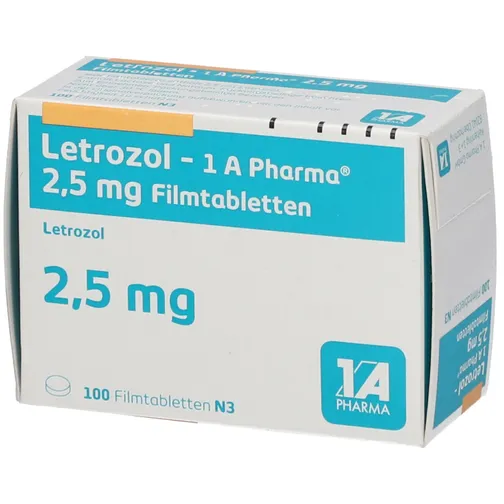
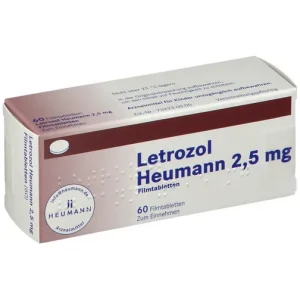
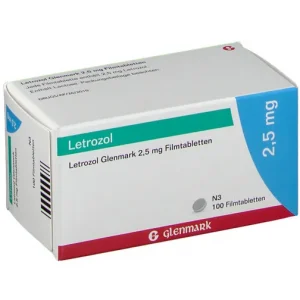
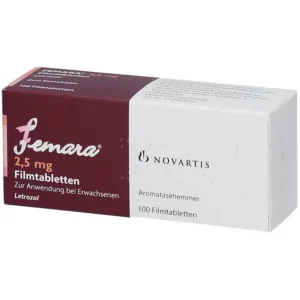
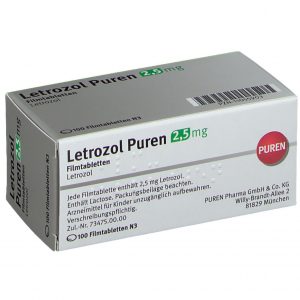
Reviews
There are no reviews yet.